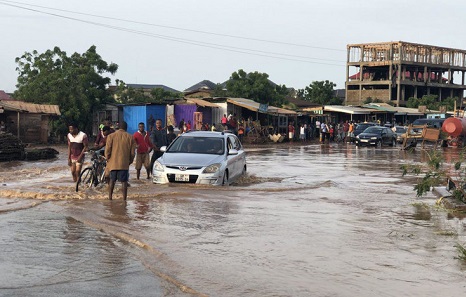Parliament has approved an additional US$150 million financing from the World Bank to bolster the Greater Accra Resilient and Integrated Development (GARID).
The Project is aimed at mitigating the impact of flood on households, businesses and offices located in flood prone areas along the Odaw River channel in Accra, thereby enhancing economic and social development of the area.
In a press release dated May 21, 2024, the Ministry of Finance outlined the scope and objectives of the additional funding, emphasizing its importance for the socio-economic development of Accra, especially for residents in flood-prone areas.
The statement said the additional financing will support a range of critical infrastructure improvements and new systems to mitigate flooding.
“These projects are designed to address the root causes of flooding by improving drainage and solid waste management systems,” a Ministry official stated.
The statement said approximately half a million people living in low-income communities around the Odaw Basin are expected to benefit directly and indirectly from these improvements.
Initiated in 2020 with an initial $200 million from the World Bank, the GARID Project is a cornerstone of the government’s strategy to tackle urban flooding and its associated risks. With the approval of this new financing, stalled projects under GARID will be completed to bring much relief to residents within this catchment area.
“The implementation of these projects is expected to alleviate flooding along the Odaw River Basin by improving drainage, solid waste management, and infrastructure services in high-risk informal settlements within the basin,” the Ministry noted.
This comprehensive approach aims to reduce immediate flood risks and enhance long-term economic and social resilience.
Beyond immediate benefits, the Ministry highlighted the broader economic impact of the GARID Project. The press release pointed out that the disbursement of funds, together with expected inflows from the IMF, World Bank, and African Development Bank, will support the exchange rate and ensure macroeconomic stability.
Further, the Ministry assured stakeholders of its commitment to the effective utilization of the funds to achieve the project’s objectives.
The approval of the US$150 million financing by Parliament, faced initial opposition from the Minority with a close vote of 137 members in favor and 132 against.










